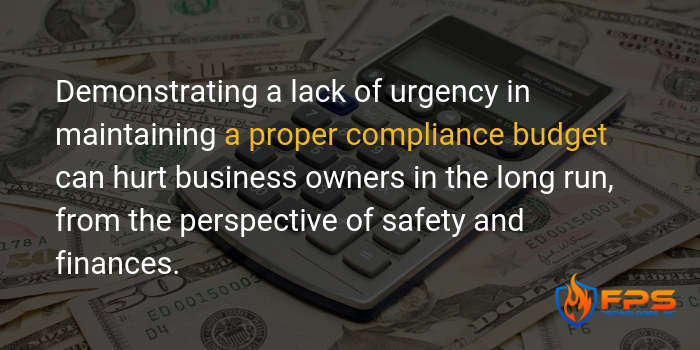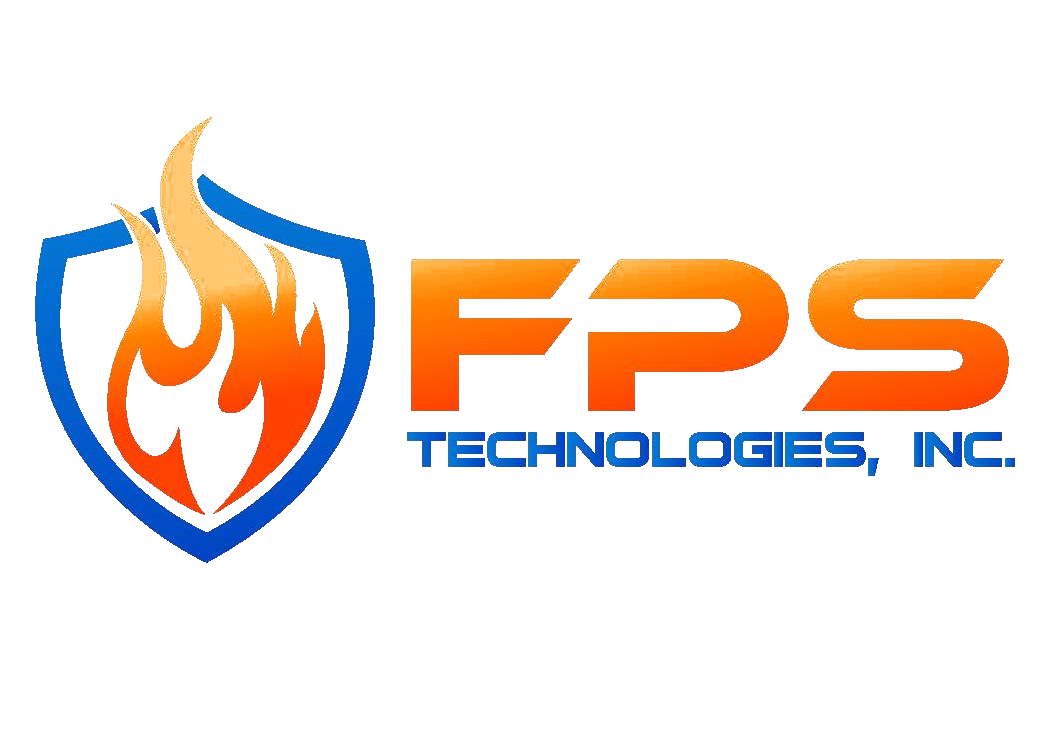A company’s fire prevention and safety budget is very often the first area that they make cuts to in an effort to save money, especially during a commercial remodel.
Business owners often believe that their operational budgets should only increase, and so they look to pull money from elsewhere as a result.

This begs the question, Why should business owners prioritize their compliance budgets? There are a few main reasons:
- To meet the life safety needs of their building’s occupants. This includes themselves, employees, customers, or whomever else might be on the premises at any time.
- To protect their building.
- To protect business-related content. This includes furniture, computers, important documents, and many other valuable things that are used in the course of business, many of which are irreplaceable.
- For insurance requirements.
To protect these things, it is important that a business owner first realizes that accidents do happen and that their building is not immune to the worst-case fire scenario.
They must adopt a forward-thinking mindset and “hedge their bet,” if you will, when it comes to the money they will put towards their safety budget.
The next step is to be knowledgeable of the things that need to be kept in mind when developing and maintaining a compliance budget. Below are some of the different parts of a compliance budget that business owners should be aware of:
- Ever-changing code requirements. (check out our last blog article "How to Find Your Local Codes" for more information)
- Ever-changing insurance company requirements.
- Change in building hazard classification. To be more specific, the change of declared use for a particular building. For example, changing a location from office space into a warehouse. Another thing that can fall under this umbrella is the change of materials that might be present on the premises, like moving from water to petroleum-based products.
- Emergency-related service costs. For example, unexpected services resulting from uncontrollable events or a lack of preventative maintenance.
- General inspection and maintenance costs over time. This generally looks like annual inspections based around updated code requirements, and these are done by a licensed company.
Throughout the process of business ownership, there is no question that it is difficult to keep up with everything there is when it comes to maintaining a company.

When it comes to determining a compliance budget there are a variety of things that business owners tend to forget or overlook due to the attention that other things in the course of business require.
These include, but are not limited to, the change in use classification of their building; the potential for uncontrollable incidents (such as freezing, accidental bursting of sprinkler heads, or pipe damage incidents); lack of preparation for new local safety codes that come out periodically; defects that may crop up over time (like a sprinkler deficiency); and change in building materials that could change the safety requirements for their life safety requirements.
Demonstrating a lack of urgency in maintaining a proper compliance budget can hurt business owners in the long run, from the perspective of safety and finances.

Lack of consistent (annual or semiannual) contact with compliance industry professionals (like FPS Technologies) leads to a long-term lack of education from the business owner’s perspective in each compliance field. This potentially leads to one issue compounding on another, and thus requiring the company to become reactive instead of proactive.
This lack of urgency or attention can also lead to missing code, which could lead to people involved (employees, customers, etc.) being injured or even losing their lives due to general negligence.
In general, for most small businesses that we work with, a good estimated range of cost for a compliance budget is between $500 - $1,250 per year. This can vary greatly, however, and we would love to be your point of contact and reference if you were to have any further questions in regards to a specific situation. Hiring a company like FPS Technologies to do a full-blown survey & baseline quote is a great idea, as well.
Running a business - and more specifically, maintaining a proper compliance budget is not an easy task, and the quote “it takes a village” can properly apply here in the same way it would raising children.
Getting involved with business associations or a chamber of commerce for a given area or region allows business owners to lean on each other and develop trust in peers who have potentially been down similar paths before.



